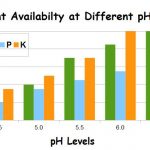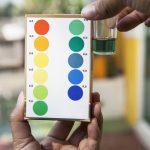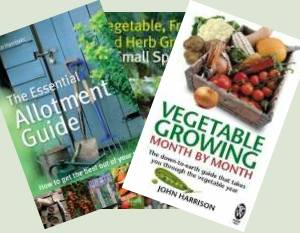I am constantly surprised how many gardeners ignore liming. The acidity of the soil has a huge effect on fertility because the acidity of soil controls how available nutrients are to your crops.
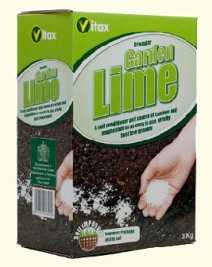 Clay soils are also harder to work the more acid they are for some complicated chemical reason.Liming enables flocculation, the process where the small particles join into larger particles as in a sandy soil.
Clay soils are also harder to work the more acid they are for some complicated chemical reason.Liming enables flocculation, the process where the small particles join into larger particles as in a sandy soil.
Different soil types will behave differently so one vital tool for the serious gardener is a tester for acidity levels. You can also judge the acidity of the soil by the types of weeds that grow and their behaviour.
Sorrel, creeping buttercup, nettle, dock and mare’s tail are all signs your soil is becoming or is too acid. Reducing soil acidity will help deter some weeds – they are evolved for acid soils unlike our beloved crops.
Soil PH Explained
The letters pH stand for “Power of Hydrogen” and is a measure of the molar concentration of hydrogen ions in the solution and as such is a measure of acidity. Wow! For us non-chemists and for gardeners the scale generally runs from 4.00, which is highly acid in soil terms, through 7.00 which is neutral to 8.00 which is alkaline.
To LOWER soil acidity we need to RAISE the pH value and vice versa
Keeping it simple, if your soil is too acid then nutrients will not be available to the plants even if they are present. To LOWER soil acidity we need to RAISE the pH value (that one always confused me) and vice versa.
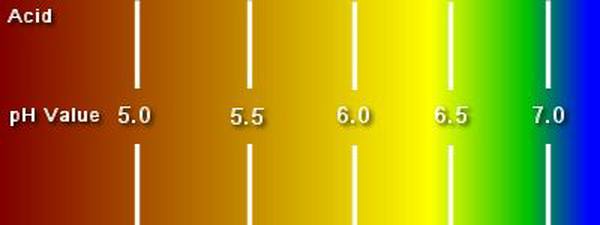
pH Value Chart from Acid to Alkali
Different plants require different levels of acidity – hence we have ericaceous composts for acid loving plants. Most vegetables thrive when the soil is slightly acid i.e. a pH level between 6.5 and 7, Potatoes tend to prefer a lower pH, more acid soil and Brassicas prefer a slightly alkaline soil, pH of 7.0 or even slightly higher. That’s why it is suggested to lime in the autumn after potatoes and to follow with Brassicas who like the high pH in many crop rotation plans.
Changing the acidity level of the soil
To raise the pH and lower acidity or sweeten the soil, we add lime. To lower pH and increase acidity you can add sulphate of ammonia or urea which are high nitrogen fertilizers.
From this you can see that adding manure will also lower pH and make the soil more acid.
It’s counter to what you expect, but adding loads of manure year after year will actually reduce soil fertility by making it too acid so the plants cannot access the nutrients. They become locked up.
Never Mix Lime and Fertilizer
If you have ever had a pee (slightly acid) into a toilet with bleach (very alkaline) in it, you will have noticed there is an unpleasant reaction, Just the same if you mix your lime and fertilizer. They will at best cancel each other out in an unpleasant, to the soil, reaction.
So never lime in the same year you fertilise if you can avoid it and certainly not in the same couple of months.
Different Soils
Clay soils tend to become acid more quickly than sandy soils and the amount of organic matter has an effect as well. Clay soils can also be slow to react to the addition of lime as well.
Do you need to lime and how much to lime – measuring pH
Measuring Soil Acidity (pH level)
You can buy various types of test kit, often you mix a soil sample with water then compare a colour change to a chart, but this is a bit of a pain for taking more than a couple of samples. You can also use an electronic meter, which is much easier just requiring polishing and inserting into wet soil but can give wrong results if not used correctly
Whichever kit you use, it will come with instructions and will give you a reading. Never make a judgement on the basis of just one test. You may have hit a spot particularly high or low pH. Take samples or test from a number of spots and this will give you a much better general view of your soil’s acidity level.
Types of Garden Lime
Agricultural Lime or Garden Lime
Agricultural Lime or Garden Lime is made from pulverized limestone or chalk. As well as raising the pH it will provide calcium for the crops and trace nutrients. Some recent experiments are indicating our soils may well benefit from the addition of rock dust, adding trace nutrients to the soil.
Lime is also available as Prilled Lime or Granular Lime which means small pellets or balls. These are easier to apply over large areas as you can use a machine spreader.
Dolomite Lime
Dolomite lime is similar to garden lime but contains a higher percentage of magnesium.
Quicklime and Slaked or Hydrated Lime
Quicklime is produced by burning rock limestone in kilns. It is highly caustic and cannot be applied directly to the soil. Quicklime reacts with water to produce slaked, or hydrated, lime, thus quicklime is spread around the land in heaps to absorb rain and form slaked lime, which is then spread on the soil. Their use is prohibited by the organic standards and while fast acting, the effect is short lived in comparison to garden lime.
How Much Lime to Use
Do be careful, too much lime can raise your pH too far and an alkaline soil is as bad as an acid soil for yield.
When to Lime
It’s usually best to lime your soil in the autumn and allow it to work its way into the soil over the winter. You do not want to lime when you have crops in the ground as the lime may well damage the crops Since brassicas like both high amounts of nitrogen & humus as well as a high pH, manure in the autumn for them and lime in the early spring,
Conclusion
Testing the soil takes little time and is very cheap. The benefit of liming is huge so do it as part of your rotation and you will see better crops for your efforts.
| Soil Type | KG / M2 | lb / yd2 |
|---|---|---|
| Clay | 0.9 | 1.66 |
| Sand | 0.7 | 1.29 |
| Light | 0.8 | 1.47 |
| Organic | 1.1 | 2.03 |
| Peat | 1.7 | 3.13 |

